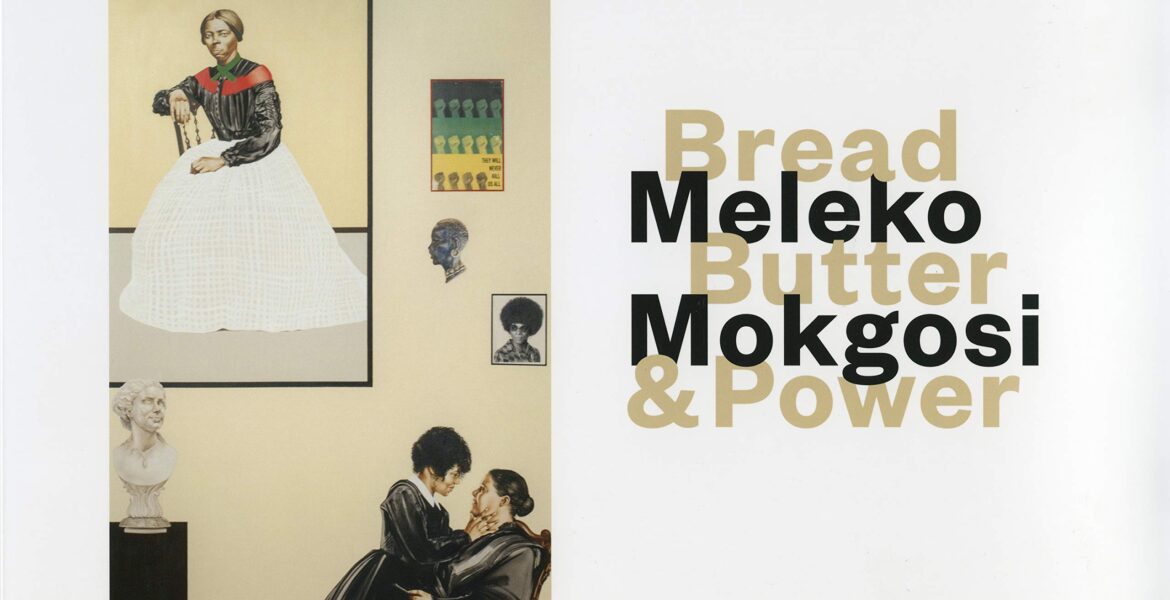- The art installation addresses themes of feminism, gendered division of labour and the place of women in the nation state
- The eight-chapter project ‘Democratic Intuition’ (2013–2019) is one of Mokgosi’s longest-running series
- Bakwena of Thapong: “This is inspirational and it goes to prove that there is a future in the creative industries”
GOSEGO MOTSUMI
New York-based Motswana artist, Meleko Mokgosi, recently proved that there is a future in the arts when he sold a monumental painting for a whopping $750 000 (P8 million approx) at the Art Basel in Basel.
Titled “Bread, Butter, and Power (2018),” Mokgosi’s painting attracted collectors’ interest at the fair and was subsequently acquired by an anonymous American collector. “This is inspirational and it goes to prove that there is a future in the creative industries,” said the Coordinator of Thapong Visual Arts Centre, Reginald Bakwena, in an interview.
“As artists, let us push ourselves to produce quality that collectors will find hard to ignore. Let us network with Mokgosi, follow his work and let it be our sample and reference. He is surviving off his talent and we can all do it.”
Mokgosi’s episodic “Bread, Butter, and Power” installation consists of 21 large scale paintings that interrogate the theme of feminism in the context of southern Africa and consider the consequences of dividing labour practices by gender. The eight-chapter project titled “Democratic Intuition” (2013–2019) is one of Mokgosi’s longest-running series. It seeks to explore ideas about the many ways that democratic concepts influence lives, love and relationships.
The artist’s approach to storytelling through the form of history painting allows viewers to compare what is seen in the paintings to the realities of inequality and gendered labour division from their experience. This approach also inspires people to think expansively about politics, power structures and the role of history in the creation of the current nations of southern Africa.
Said Bakwena: “I have been following Mokgosi’s work. He is a skillful artist who understands what he is doing. In the end, what makes a painting successful is that its composition and subject matter or concept all work harmoniously to deliver a unified, quality and well executed artwork that is pleasant to the viewer. I urge artists to master their craft because collectors also look for quality craftsmanship. We also need to take advantage of the digital space to showcase our work to the world.”
According to a press statement released by the artist, the several paintings in the installation picture intimate scenes of men and women in interior spaces of their homes that re-act their lived experiences. In one, for example, a young woman sits casually on a comfortable chair in an airy, well-appointed room. Her leisurely pose raises questions about the labour expected of women according to their socioeconomic positions.
Other canvases venture outdoors to portray groups of school children and market stands. These explore ideas about the varied standing of women across the social fabric of southern Africa, the sacrifices made by women, and the failure of national governments to value their hard work.
According to the press statement, Mokgosi lends his critical voice to the experiences of young African artists of his generation, born since the euphoria of the 1960s independence movements. In adopting a historian’s approach by drawing on extensive research and theoretical grounding, he provides new perspectives on the transition from the colonial era through to Botswana’s independence, and interrogates the current moment as it relates to the rippling ramifications of the past.
This is what the artist himself says: “I think historical specifics are crucial because I am grappling with the epistemological effects of colonialism in southern Africa. So it is urgent, I believe, to parse out how history has been legitimised, what dominant histories have been left out, and more importantly, how to trace untracked histories and bring them to the fore because these are all histories that matter.”
Mokgosi is a contemporary artist and educator whose projects subvert and challenge colonial and post-colonial frameworks in order to offer more nuanced narratives of southern Africa’s history and the present. He received his BA from Williams College in 2007 and participated in the Whitney Museum of American Art’s Independent Study programme that same year.
He then received his MFA from the Interdisciplinary Studio Programme at the University of California, Los Angeles in 2011 and was an Artist in Residence at the Studio Museum in Harlem from 2011 to 2012. His work has been exhibited both nationally and internationally.

